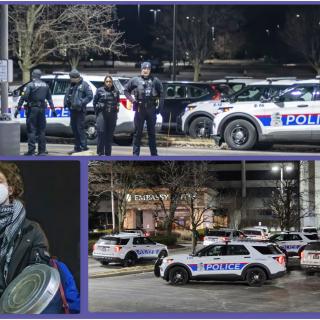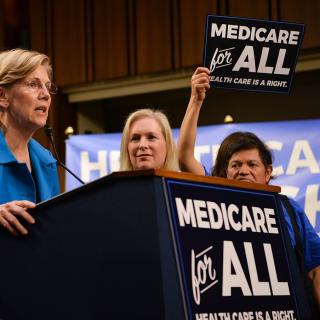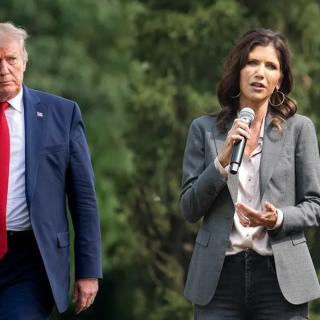Advertisement
COVID-19 has diminished the average U.S. lifespan by an entire year, but Black Americans and those of Latin American origin have lost 2.7 and 1.9 years respectively, according to the CDC. Overrepresented in essential occupations, these workers are still not being prioritized for vaccines even though one in 10 are being exposed to the virus at least once per week, while many white Americans who work at home have already been vaccinated.
In February, Essential Ohio sent a letter to Gov. DeWine and Ohio Health Department Director Stephanie McCloud urging them to prioritize essential workers for COVID-19 vaccines. Essential Ohio is still awaiting an answer from DeWine and McCloud.
There are over 15,000 undocumented workers in the food supply chain in Ohio, for example, and that’s only a portion of our undocumented essential workforce in this state. Ohio’s agricultural industry, which relies on a historically marginalized and vulnerable migrant workforce, has continued to employ and bring in thousands of workers to ensure that Ohioans and the rest of the country have food on their plates during this dangerous and challenging time.
All frontline workers should have access to vaccinations, including undocumented and uninsured workers. Immigrants who lack lawful status are often fearful of providing private information to state officials over concerns that they could be shared for non-public health purposes such as immigration enforcement. As such, we urge state officials to make clear as part of any public health campaign that any information will be kept private and not shared outside the public health context.
Essential Ohio arose out of the pandemic and is a state-wide campaign to create long-lasting changes for essential workers by raising standards in key sectors, improving safety, and increasing worker power. It’s founding members include Ohio Immigrant Alliance, Policy Matters Ohio and Central Ohio Worker Center, among others.
Their letter outlines other worker protections, like paid sick leave, that are “essential” to the lives and wellbeing of these workers and must be extended to them immediately. Consider these facts:
Black Ohioans make up 13% of the population but are more likely to work in essential occupations. As a direct result, they make up 23% of COVID-19 cases, 31% of hospitalizations, and 19% of deaths in Ohio, according to Health Policy Institute of Ohio.
Ohio Latinos also have higher rates of COVID-19 infections and hospitalizations. Many work in food production, manufacturing, and agriculture. Those who are immigrants, especially undocumented immigrants, are forced to accept these risks – which can already be dangerous, even absent a pandemic – and receive none of the COVID-19 economic aid from our government.
According to the Center for American Progress, nearly 47,000 Ohioans working in essential jobs are immigrants without stable legal status. Still, they pay more than $757 million in federal, state, and local taxes, $161 million in mortgage loans and $291 million in rent. Their total purchasing power is nearly $2 billion. And, they have 27,000 minor children who are U.S. citizens.
Most undocumented essential workers have been in the United States for more than a decade. In fact, 40% own their homes. In Columbus, undocumented immigrants comprise 12% of all essential workers. Immigrants, both documented and undocumented, make up 20% of the essential workforce nationwide.
Essential workers continue to show up and do their jobs, despite the risk of contracting this deadly virus and the lack of a financial or health safety net. In fact, nearly one in five U.S. workers are exposed to the virus at least once per month, with many exposed every week. Most restaurant workers stand within six feet of a customer without a mask every shift.
“For a year, politicians praised essential workers as ‘heroes’ but let them contract the virus and die at alarming rates. In order to keep doing the work we all see as essential for society to function, it is essential that these workers receive both priority access to the vaccine and broad-based worker protections. Yesterday is already too late,” said Sarah Ingles, Board President, Central Ohio Worker Center.
The Ohio group is part of a national campaign, Always Essential, which is also urging the Biden Administration and National Governors Association to prioritize essential workers in vaccine distribution.
#EssentialOH is powered by ABLE, Justice for Migrant Women, the Ohio Immigrant Alliance, Cleveland Jobs with Justice, La Conexión, Policy Matters, Cincinnati Interfaith Workers Center, and Central Ohio Worker Center. Essential Ohio is part of a national campaign, Always Essential.
Follow us on Twitter @EssentialOH. Read the full letter here.



